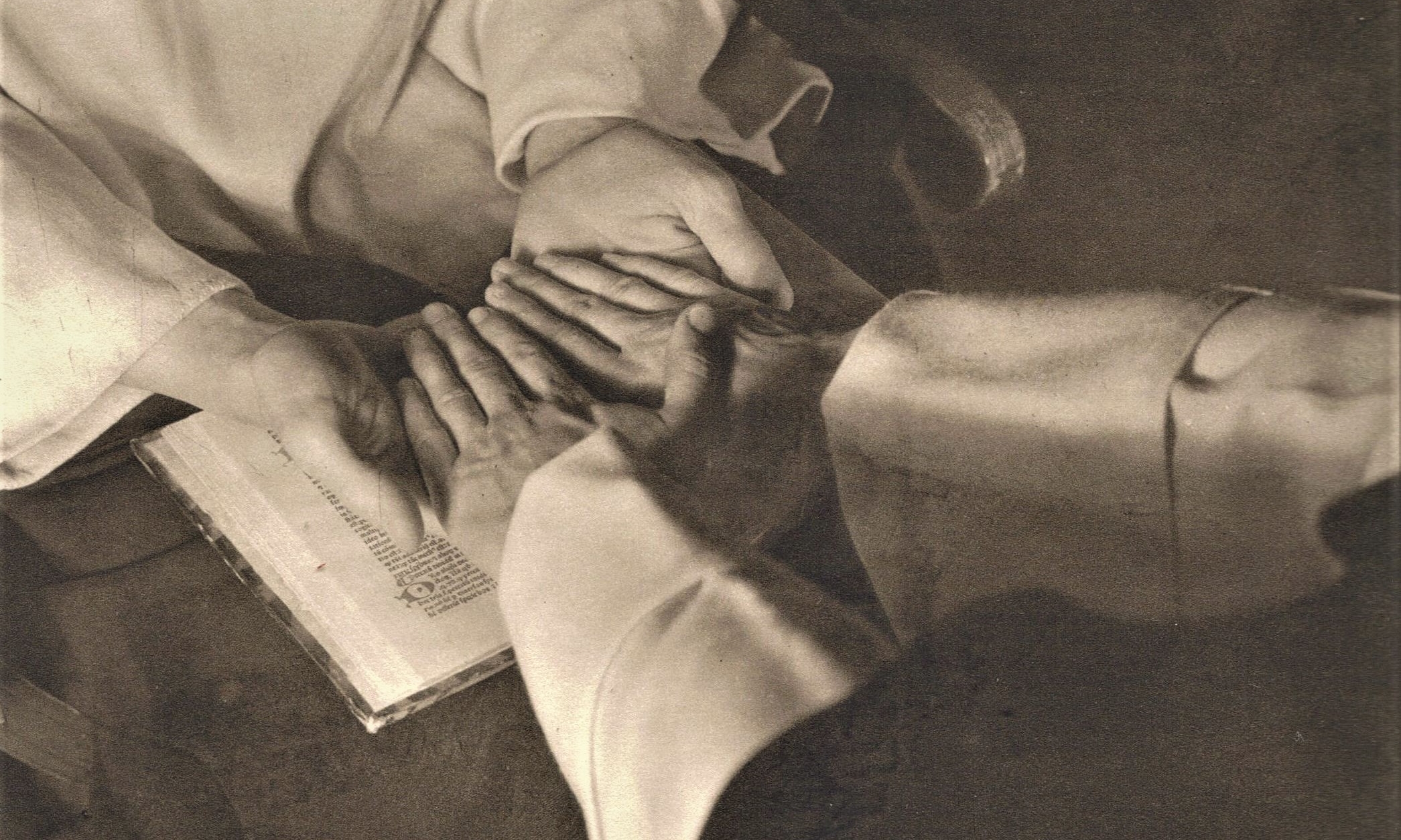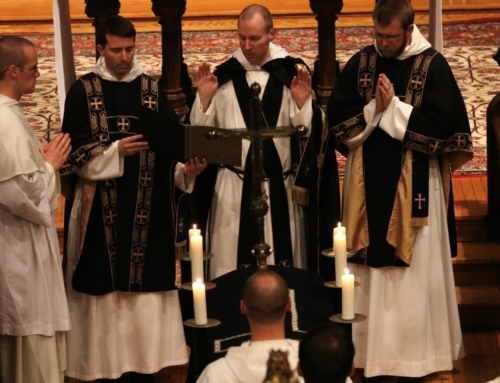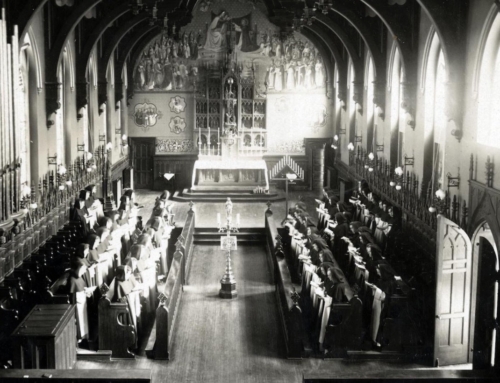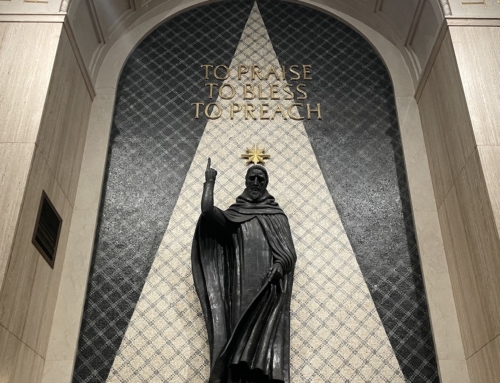I will give you glory, O God my king, / I will bless your name for ever. / I will bless you day after day / and praise your name for ever (Ps 145).
On February 10, thirteen Dominican brothers will profess obedience to God, to Blessed Mary, to Blessed Dominic, and to their superiors for the rest of their lives: Lord, God of hosts, / happy the man who trusts in you! (Ps 84) They will vow to live out their days as consecrated religious according to the way of life of the Order of Friars Preachers. The Dominican Order is their path to salvation; life in this Order is the means by which God wishes to transform their lives through Jesus Christ and in the Holy Spirit.
I am bound by the vows I have made you. / O God, I will offer you praise / for you have rescued my soul from death, / you kept my feet from stumbling / that I may walk in the presence of God / and enjoy the light of the living (Ps 56).
Vows are for the imperfect; they are a realization of the constant need for the mercy of God. As part of the rite of profession, the brothers are asked, “What do you seek?” And they reply, “God’s mercy and yours.” God’s mercy and the mercy of the brethren are the steadying hand that supports those who stumble while striving for holiness in consecrated life. The gesture of profession—putting one’s hands into the hands of the superior—signifies obedience to the superior but also the great mercy with which the professed is embraced.
So I will always praise your name / and day after day fulfill my vows (Ps 61).
The principle duty of all religious is the contemplation of divine things and union with God in prayer. To praise God on behalf of the entire world is the responsibility of religious: My lips are filled with your praise, / with your glory all the day long (Ps 71). In the Divine Office, religious throughout the day praise God and thank Him with the inspired words of Scripture that Jesus Himself used—the Psalms. The Psalms speak to every human experience, from joy and praise to suffering and betrayal. In Dominican life, the Psalms are the first words on the lips in the morning, and at the death of a brother, the brethren will surround their brother’s body and chant the Psalms, remembering his fidelity to prayer and begging God’s continued mercy.
I will thank you, Lord, among the peoples, / among the nations I will praise you / for your love reaches to the heavens / and your truth to the skies (Ps 57).
This common life of prayer prepares the brothers for preaching the truth of the Gospel to all peoples. Each religious order has a particular charism, a gift from God that is for the good of the entire Church. The vow to Dominican life entrusts, to those who profess it, the charism of preaching for the salvation of souls, and the friars draw upon this charism as they go forth as preachers of grace.
I bind myself to do your will; / Lord, do not disappoint me. / I will run the way of your commands; / you give freedom to my heart (Ps 119).
In a seeming paradox, the vow of obedience sets the religious free. Obedience does not imply a state of subjection; rather, obedience to the will of God is true freedom. For religious, to die to self, to be God’s instrument in the world, is God’s will for them.
My vows to the Lord I will fulfill / before all his people. / O precious in the eyes of the Lord / is the death of his faithful (Ps 116).
Indeed, death is the beginning of life, because Jesus Christ Himself – who became obedient to death, even death on a cross (Phil 2:8) – made this possible.
Into your hands, Lord, I commend my spirit (Ps 31).
✠
Image: Dominican Profession







